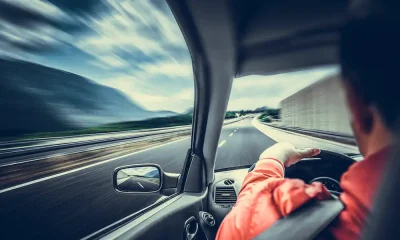General
Don’t Let a Driving Ban Ruin the New Year

December festivities should end only with good cheer. However, due to alcohol intake, they often include a run-in with the police for a drink-driving offence.
Christmas and New Year are the worst times for drunk driving.
According to Brake UK, more car crashes occur during December, many from driving drunk.
However, in December, more drivers are using the roads this month, and many are not regular drivers. They are coping with the weather, the traffic, and maybe unfamiliar roading.
Caused an accident?
Suppose you made the wrong decision to drive after drinking alcohol and causing an accident. In that case, you’ll need counsel to advise you on the law and your responsibilities in your particular case. Don’t tough it out alone. In fact, if you cause an accident for any reason and there are injuries, get legal representation.
Avoiding a driving ban is your desired outcome. Truckers or workers who need a driver’s license for work are most vulnerable.
Does your business or employer need you to have a clean driver’s license?
If your job depends on driving to see clients, you could lose income or your career. Also, if clients find out a business has employees with driving convictions, it may damage the brand reputation at best and, at worst, result in losing clients.
Here are the most essential things about arguing against a driving ban.
The Penalty System
The many codes and attendant endorsements in the driving offence laws can be confusing.
For instance, CD40, “causing death through careless driving when unfit through drink,” can carry a points penalty of 3 to 11, while DR40, “in charge of a vehicle while alcohol level” above the limit, incurs an automatic 10 points.
There is a lot to interpret, and many factors, including the results of your breath, blood, or urine test, will play a part in how the magistrate hears your case rules.
Did you know you can be penalised if you don’t agree to submit a sample or refuse to allow the analysis of a sample taken while intoxicated, even if you weren’t driving?
Although the stated penalty for exceeding 12 points or drunk driving is an “obligatory ban,” it is anything but. In fact, there is quite a lot of judicial discretion allowed in these cases.
It’s important to note that trying to evade a driving ban through loopholes or deceptive means is ethically questionable and can lead to more severe consequences. The legal system is in place to ensure public safety, and violating the law can have serious repercussions.
Ultimately, the best course of action is to avoid driving under the influence of alcohol altogether. If you have concerns about your ability to drive after consuming alcohol, it’s safer to arrange alternative transportation.
Avoiding A Ban
You can help your case by being solidly prepared and not disrespecting the Court or the police. Firstly, get your paperwork in order if you plead guilty but seek to reduce the charges.
Hardship can be argued based on different things, but the most straightforward case is the loss of one’s income or business.
If your driving record is clean, you’ll start off on a much better note than if you have penalty points.
If you’ve had a driving ban or tried to defend against one in the past, you will not be able to use the same arguments for exceptional hardship as before unless more than three years have passed since the last conviction.
In addition, you need to be prepared to answer why the Court should allow you to avoid a ban, going beyond just employment.
The Court usually observes that the defendant should have been aware that a ban would likely result from drunk driving, so present your mitigating circumstances, letters of character if possible, and every argument at your disposal.
Seek Legal Advice
Consult with a solicitor or legal professional specialising in traffic or criminal law. They can provide guidance based on the specifics of your case and help you understand your options.
Challenge the Charge
Depending on the circumstances of your case, you may have grounds to challenge the charge. This could involve questioning the accuracy of the breathalyzer or blood test results or disputing the legality of the police procedure.
Mitigating Circumstances
If mitigating circumstances, such as a genuine emergency or a medical condition, influenced the test results, you may be able to present these in court. However, success with this approach is not guaranteed.
Attend a Rehabilitation Course
In some cases, attending a drink-driving rehabilitation course may be offered as an alternative to disqualification or to reduce the length of the ban. These courses are designed to educate individuals about the dangers of drunk driving.
Early Guilty Plea
If you decide to plead guilty, doing so at the earliest opportunity may result in a reduced sentence or more lenient penalties.
Character References
The court may consider providing character references that attest to your good character and the impact the disqualification would have on your personal and professional life.
Final Words
It’s important to note that trying to evade a driving ban through loopholes or deceptive means is ethically questionable and can lead to more severe consequences. The legal system is in place to ensure public safety, and violating the law can have serious repercussions.
Ultimately, the best course of action is to avoid driving under the influence of alcohol altogether. If you have concerns about your ability to drive after consuming alcohol, it’s safer to arrange alternative transportation.






